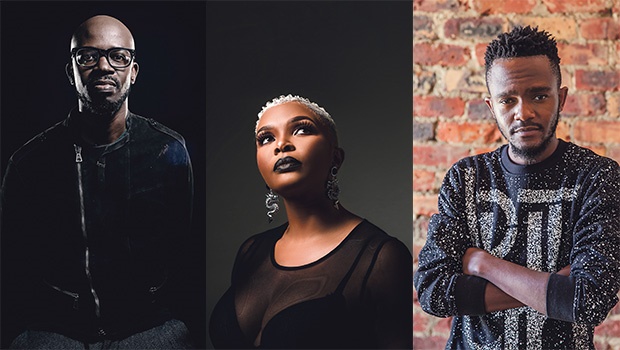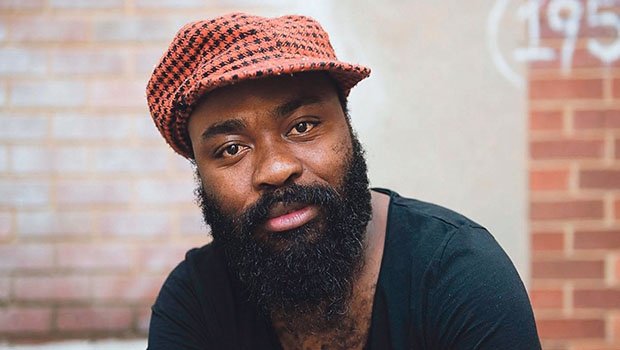Even with improved quotas, local artists say their music plays second fiddle to international content.
The local music industry has been hit hard by the national lockdown, and it seems as if broadcasters are rubbing salt into the artists’ wounds as they are failing to prioritise local content on their platforms.
According to Radiomonitor – a global airplay monitoring service – its spins chart of 200 songs for the period between March 20 and April 20 shows only 47 local songs appearing in the top 100, while only six local artists’ names made it into the top 20.
Artists speak out
This is not the first time that artists have pleaded with broadcasters to support local content.
In 2016, then SABC chief operating officer Hlaudi Motsoeneng implemented a 90/10 quota in favour of local content across all SABC radio stations, but he was later blamed for costing the SABC millions.
Earlier in the year, the Independent Communications Authority of SA (Icasa) had proposed and adjusted quotas for local artists in stages.
According to Icasa’s government gazette, the SABC agreed with the proposed South African music quota of 35% for commercial radio, but objected to the 70% quota for public radio.
It instead proposed 60% and recommended that this quota be implemented in stages to ensure that audiences did not experience a sudden change in what they listened to.
The public broadcaster felt that 70% was high and would lead to the loss of audiences.
Despite Icasa’s new quotas, artists are up in arms. Renowned deejay Black Coffee, whose real name is Nkosinathi Innocent Maphumulo, told City Press this week that “this is the most disappointing thing about our continent”.
“As South Africa, most African countries look up to us, but the same countries are more patriotic than ours. It is quite embarrassing, to be honest,” he said.
He added that he was unaware of where he should direct his concerns and how he should address what he thinks is an old and ongoing conversation.
“Do we need to speak to the [communications, telecommunications and postal services minister]? Is it a matter of law or is this thing in the Constitution?” he asked.
Black Coffee said local artists needed more airplay, especially during the Covid-19 coronavirus crisis, as they have no shows and cannot perform live.
“Looking at the situation that’s happening, with us not being able to make revenue, the radio wave money could go a long way,” he said.
He suggested that stations adjust the 60/40 ratio: “Broadcasters are constantly playing the same foreign content. If you listen to Metro FM on Sundays, it’s an American circus!”
Acclaimed singer-songwriter Simphiwe Dana agreed that, “no matter how you look at it, the excuses you hear from radio stations are simply a lack of patriotism and perhaps a smidgen of self-hate that results in radio stations impoverishing local artists and enriching international artists.
“At the same time, you will never hear the music of local artists on international radio stations,” she said.
Popular rapper Senzo “Kwesta” Vilakazi shared these sentiments.
“If the numbers don’t represent the mood of the country, then something drastic has to change. If the numbers don’t reflect, then something is wrong.
“Royalties such as needletime play a huge role, especially in times like this. As artists, we are not going out there to perform on shows and this is our main source of income,” the Ngud’ hitmaker said.
Jazz artist Nduduzo Makhathini said eschewing local music for international hits affected more than just the revenue of artists.
“It is important to realise that when local music doesn’t play on radio, it doesn’t only impact on artists’ revenues. At a deeper level, it also impacts on our culture.”
He added that culture is based on oral traditions, “and that is how we come to know ourselves and our histories.
The absence of our music on radio is the absence of our identities on the airwaves.”
Siphiwe Ngwenya, the co-owner of Born In Soweto, an independent music services company, said: “As a country, we have created an unending irregularity where South African music is perceived as inferior even at a time when music from the continent is leaned on more than it ever has been by the rest of the world. It is disheartening that the assault on our diverse cultures and languages is happening with the help of regulations that offer broadcasters many means of evasion should they not want to put South African music on their playlists.”
Is Icasa failing artists?
Last month, Sports, Arts and Culture Minister Nathi Mthethwa made a call to all broadcasters to be sensitive to the plight of artists and to favour South African content to mitigate the impact of Covid-19 on their livelihoods.
Department spokesperson Masechaba Khumalo agreed that, if broadcasters gave more airplay to local content, more money would get ploughed back into the music industry, and that would benefit the artists.
“This has a direct impact on royalties and the artists being able to create sustainable livelihoods from their work,” said Khumalo.
Icasa spokesperson Paseka Maleka said it was important to note that the current quota for individual broadcasters was 35% local music per week, including live interviews, live performances and concerts.
However, based on Radiomonitor’s recent report, this is not the case. “Every licensed broadcaster has the responsibility to submit, on request by Icasa, recordings of programmes as well as programming log sheets, which include the music playlist, so that Icasa can satisfy itself that the broadcaster is complying with the regulations and licence conditions.
“Icasa has stringent monitoring systems in place to ensure that we regulate, in the public interest, where compliance reports are compiled and approved for publication,” Maleka said.
He pointed out that, in cases where there was non-compliance, matters were addressed with the licensee, failing which the licensee would be brought before the complaints and compliance committee for adjudication and possible sanction.
SABC spokesperson Mmoni Seapolelo said the public broadcaster played a critical role in the promotion of local music with leading radio and television platforms that boast millions of audiences and showcase diverse local talent.
“In terms of quotas set by Icasa, the SABC continually exceeds these quotas set for playing local music. It is imperative that the SABC does not only play local music, but has a legal obligation to pay needletime royalties to two South African collecting societies – the Independent Music Performers Rights Association and the SA Music Performance Rights Association –for the usage of musical repertoires,” Seapolelo said.
 | ||||||||||||||||||||||||||
Get in touchCity Press | ||||||||||||||||||||||||||
| ||||||||||||||||||||||||||
| Rise above the clutter | Choose your news | City Press in your inbox | ||||||||||||||||||||||||||
| City Press is an agenda-setting South African news brand that publishes across platforms. Its flagship print edition is distributed on a Sunday. |




 Publications
Publications
 Partners
Partners










